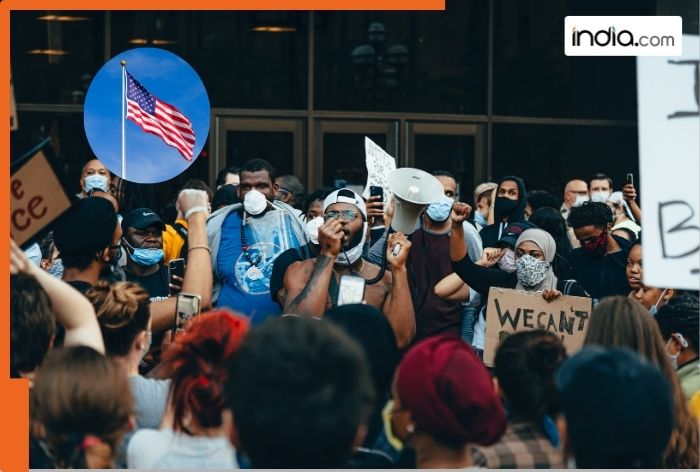World
Racial Inequality in the U.S.: Data Reveals Deep Disparities

The issue of racial inequality remains a significant challenge in the United States, affecting various aspects of daily life, including healthcare, education, voting rights, and the criminal justice system. Recent data and surveys highlight the persistent disparities faced by Black, Indigenous, and people of color (BIPOC) in the country.
According to the NAACP, approximately 65% of Black adults report feeling targeted because of their race. Similarly, about 35% of Latino and Asian adults share similar experiences of racial targeting. These statistics underscore the ongoing struggles against racial discrimination and highlight the urgent need for systemic change.
A report from the Sentencing Project reveals that Black Americans are imprisoned at a rate nearly five times that of White Americans in state prisons. This stark contrast raises critical questions about the fairness of the justice system and the broader implications for society.
In the realm of economics, a survey conducted in 2021 by the American Economic Association, which included responses from 1,422 professional economists, found that nearly 78% believe the economic disparities between Whites and Blacks largely stem from enduring discriminatory practices. This insight illustrates the pervasive nature of inequality, which extends beyond individual experiences to systemic issues that influence economic outcomes.
Further emphasizing the need for action, Human Rights Watch stated that “racial justice remained a pressing human rights concern in the United States in 2024.” Despite the U.S. ratifying the International Convention on the Elimination of All Forms of Racial Discrimination nearly 60 years ago, the organization argues that little progress has been made in implementing its provisions.
The impacts of racial inequality are evident in various sectors, particularly in healthcare and employment. Discrimination in healthcare leads to lower standards of care for BIPOC individuals, contributing to ongoing health disparities. In the job market, discrimination fosters significant income gaps, further entrenching the cycle of poverty and disadvantage.
Public opinion also reflects growing concerns about the direction of the U.S. Supreme Court. A recent Gallup poll indicates that 43% of residents perceive the court as “too conservative.” This sentiment suggests a lack of confidence in the judiciary’s ability to address issues of racial justice and equality.
As the nation grapples with these profound issues, repeated incidents of violence and discrimination against marginalized communities serve as stark reminders of the urgent need for reform. The data presented highlights not only the experiences of individuals but also the collective responsibility to foster a more equitable society.
The conversation about racial inequality is not merely academic; it has real implications for millions of Americans. Addressing these disparities requires concerted efforts from policymakers, community leaders, and citizens alike, aiming to create a fairer and more just society for all.
-

 World5 months ago
World5 months agoSBI Announces QIP Floor Price at ₹811.05 Per Share
-

 Lifestyle5 months ago
Lifestyle5 months agoCept Unveils ₹3.1 Crore Urban Mobility Plan for Sustainable Growth
-

 Science4 months ago
Science4 months agoNew Blood Group Discovered in South Indian Woman at Rotary Centre
-

 World5 months ago
World5 months agoTorrential Rains Cause Flash Flooding in New York and New Jersey
-

 Top Stories5 months ago
Top Stories5 months agoKonkani Cultural Organisation to Host Pearl Jubilee in Abu Dhabi
-

 Sports4 months ago
Sports4 months agoBroad Advocates for Bowling Change Ahead of Final Test Against India
-

 Science5 months ago
Science5 months agoNothing Headphone 1 Review: A Bold Contender in Audio Design
-

 Top Stories5 months ago
Top Stories5 months agoAir India Crash Investigation Highlights Boeing Fuel Switch Concerns
-

 Business5 months ago
Business5 months agoIndian Stock Market Rebounds: Sensex and Nifty Rise After Four-Day Decline
-

 Sports4 months ago
Sports4 months agoCristian Totti Retires at 19: Pressure of Fame Takes Toll
-

 Politics5 months ago
Politics5 months agoAbandoned Doberman Finds New Home After Journey to Prague
-

 Top Stories5 months ago
Top Stories5 months agoPatna Bank Manager Abhishek Varun Found Dead in Well









